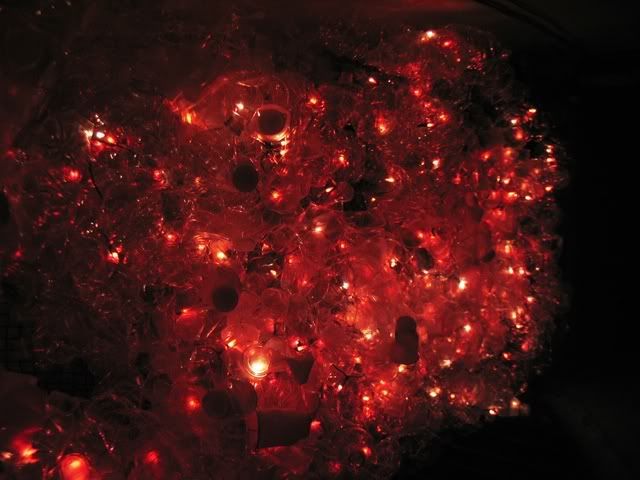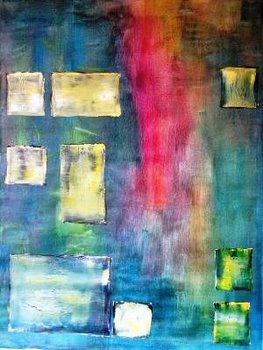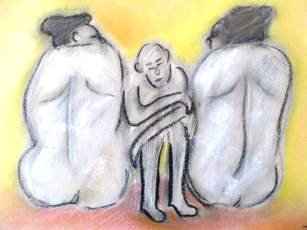A Short Story

Luke tries to breathe calmly, but it is hopeless. Poisonous blood races past his eyes. This night they are definitely more savage. They are seeking out the prey. They want relief. They are now demanding unconditional relief. There is dramatic pounding within, but he tells himself that internal percussion is probably crucial. There is no external sound except the distant murmur of a water pump on a neighbouring property. A little concentration though can make it easy to block out any distractions and keep the mind focused. Reality does not have much of a presence. Reality does not figure in any of this.
Stained white sheets. Tangled together in a heap near the foot of his father’s sad single bed. Incredibly pale feet. Toes curled upwards and yellow corns visible on the side. Somehow they remind Luke of his father’s fragility and hopelessness. The inkling, however, fails to trigger any feeling of sympathy.
Suddenly there is snoring. The trumpeting of blissful unawareness. No perception of the pain he creates. No understanding of the blurred connections with his family. The old man’s mouth is dropped open, as if he were staring in wonder at something in his dream. The apparent indulgence stirs bitter resentment. Luke thinks to himself that his father probably has pleasant dreams, when all that he deserves are the most disturbing and hellish nightmares.
Grey sweaty hair that looks like it has been haphazardly pasted to the back of his bald head. Matted and stuck out in all directions. An ugly faded rag doll that has not been looked after. The thick tattooed arms are placed firmly by his side. They are rigid and belong to someone who enjoys control. A bloated grey face, puffed out with skin that looks leathery. The rest of him though is flaccid. It has been said that his emerald coloured eyes are an asset. Luke has not noticed them for a very long time.
Once he would have been very handsome. His mother would have nurtured him and kissed him. He would have been treasured and people would have savoured his company. He was probably the very definition of altruistic and congenial. He would have taken the time to revel in his surroundings. At some stage he must have used the words I love you. Those days are now too difficult to imagine. It was once said that he sang like one of the Irish Rovers. All Luke remembers are empty beer bottles and soul destroying drunken laughter.
Pinned to the drab, faded, smoke-stained wallpaper, just above the old man’s head, is a scrap piece of paper with an Irish proverb on it. It mentions something about a happy home. Luke no longer cares to read it.
Two wooden beer crates, full of empty bottles, are boldly placed beside the bed. They are normally kept out of sight, under the writing desk near the window, but now there is no attempt to hide something he was once ashamed of. The desk is littered with copious amounts of paper: unopened letters, junk mail, bills, sheets covered in doodling. There has only ever been clutter on the desk. Luke remembers his father once saying that a person surrounded by clutter is a person with a cluttered mind. On the other side of the room, the wardrobe door can no longer be shut properly because of all the junk piled into it. In another corner, the old man’s work clothes, clean and dirty, are piled up on the floor.
It is half an hour away from midnight, barely enough time for the old man to get himself ready for his nightshift. The big mug of milky sweet tea that Luke had earlier placed on the small bedside table will be going cold. To allow that to happen signals the beginning of the long-awaited final scene.
There is no going back. The realisation is bitterly cold. Every thought is linked to the act. It has been played over in his mind, time and again. It is no longer his own thought process. It is an evil orchestration that automatically projects itself onto a large screen deep within his conscience. He no longer controls the inevitable. He does not want to control it.
Luke imagines how there will be no emotion as he slowly places a pillow over his father’s face. It will be nothing dramatic, just quiet and quick simplicity. Brahms will help ease the pain. Humming. Gentle humming. The beginning of the intermezzi for the piano, Opus 117.
“Sleep soft, my bairn, now sweetly sleep, my heart is wae to see thee weep.”
Luke will refuse to release the pressure, despite the old man’s attempts to break free. He will then marvel at how easy it was to extinguish a sad life. The drunken dunderhead, as someone once called him, will not have the slightest ounce of strength.
He takes a few more steps towards the bed, which now seems strangely prominent, as if it were an altar. His eyes are closed. The unanswerable questions begin to nag. He focuses on the most important. The three young ones need their guardian angel. No solution. It will have to wait. The present solution is the most important.
He tiptoes forward. Suddenly, in the imaginary minefield, the floor lets out a penetrating creak. He squeezes his eyes shut and waits.
'Luke, is that you?’
The old man stirs from his slumber and begins to rub his face. He doesn’t look around, but keeps his eyes closed.
'Ah, yeah, it’s gone eleven.’
Those simple words have cut the spiralling ribbon of fantasy. The slightly blurred edge that everything had possessed, and the echo that had been ringing with every thought, have suddenly vanished. Luke’s heart is beating so loud and so fast that he thinks it must be audible.
'Fix me a few eggs. I’m starved.’
The red velvet curtain, which has appeared in so many of Luke’s dreams, has come crashing down. It has fallen dramatically, unannounced, just moments before the well rehearsed final scene. He has lost count of how many failed attempts there have been. The sick, helpless feeling erupts once again in his stomach.
Copyright, 2006. Seamus Kearney.











































3 comments:
Horribly realistic writing - thank you
Oedipus complex, Freud would have said... Great moment.
Thanks Minx,
Someone asked the obvious, but no this is not based on a personal experience.
Post a Comment